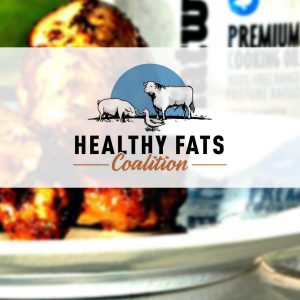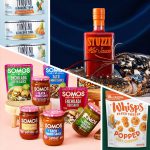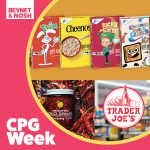Healthy Fats Coalition Aims to Fight Stigma Through Education
The newly created Healthy Fats Coalition wants the food industry to stop trimming fat from conversations about American consumers’ health.
The new education initiative seeks to spread information about how animal fats can be part of a balanced diet. HFC plans to use news stories, social media, opinion surveys and local events to achieve this goal. Coast Packing Company (CPC), a leading supplier of animal fat shortenings in the western U.S., took the lead in organizing and funding the HFC.

The group is currently made up of likeminded companies, organizations, and individuals, including Fatworks, a Boulder, Colorado-based producer of premium traditional fats; Elizabeth Swenson, author of The Artisan Lard Cookbook, the Weston A. Price Foundation, a nonprofit, tax-exempt nutrition education initiative promoting nutrient dense foods; and others. Gustafson said the group is still finalizing its 2017 marketing initiatives and events.
Fatworks founder David Cole said his company joined the HFC because he thinks education about fat is an essential part of his company’s mission.
“The dairy council, the egg council, the beef council, etc., all work together to build awareness of their respective products and these campaigns seem to work,” Cole told NOSH. “The ‘Got Milk’ ad campaign was hugely successful, for example. Fat needs this type of movement desperately as the movements like Keto, Weston A. Price, Paleo, and Whole30 will only bring healthy fat awareness so far.”
HFC is not a commercial organization, and support for the group requires no cost or obligation among participants, according to Gustafson. Details of the application program are still being determined, but, for now, food product or service companies, medical professionals, nutritionists and dietitians, or bloggers are invited to join the awareness campaign. The only requirement is that members believe and promote its mission: to “affirm that minimally processed, animal fats deserve a central place in the American diet.”
Coalition members can let consumers know they are part of the campaign by using its badge on their websites and social media channels.
“There’s strength in numbers, and if you get enough like minded people together, you can effect change,” Gustafson said. “So I think it was a confluence of the information already out there and our folks… reaching out to those who view animal fats in the same light: that animal fats have been unfairly demonized.”
The animal fat industry has been the target of not only health industries, but also fellow food industries like the sugar and vegetable oil industry. However, not all research promoting the health benefits of those products over high fat products has been proven truthful.
In September, The New York Times reported that the sugar industry paid scientists in the 1960s to play down the link between sugar and heart disease and promote saturated fat as the culprit instead.
“At the end of the day it should be about consumer choice,” Gustafson said. “The message should at least be delivered, and we are making a decision about what we believe is best for ourselves, our bodies and our families.”












